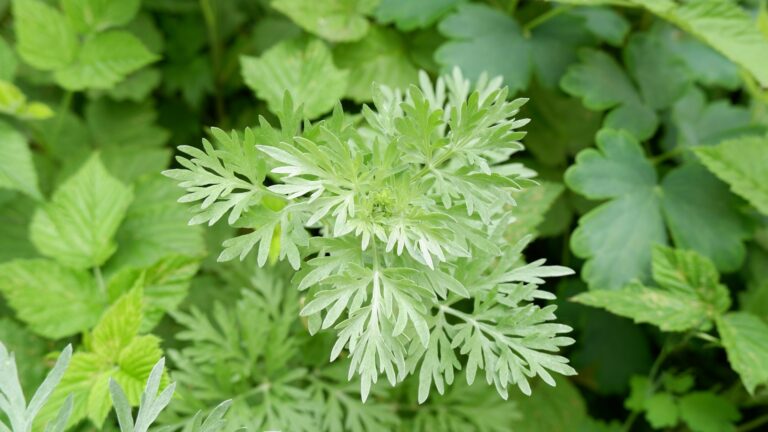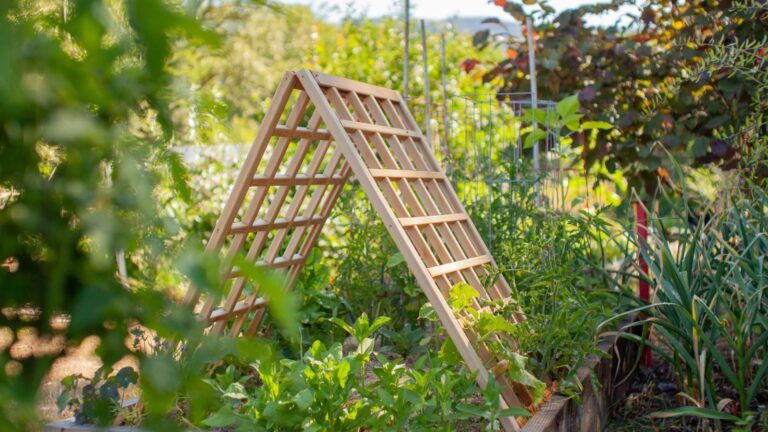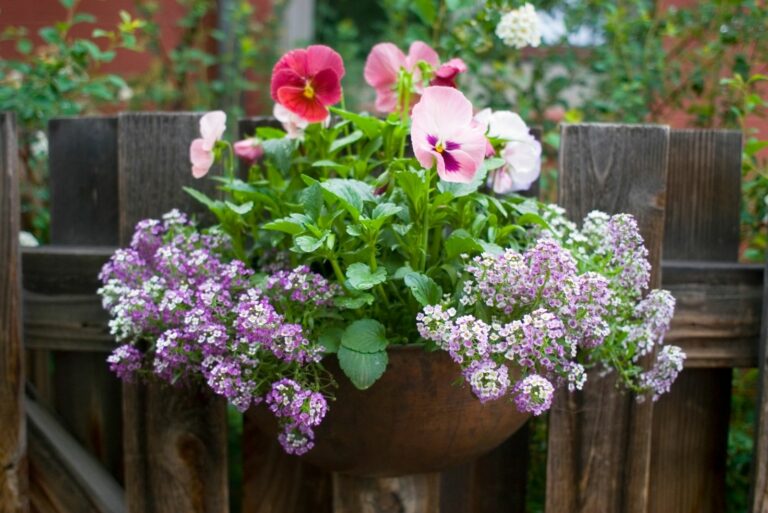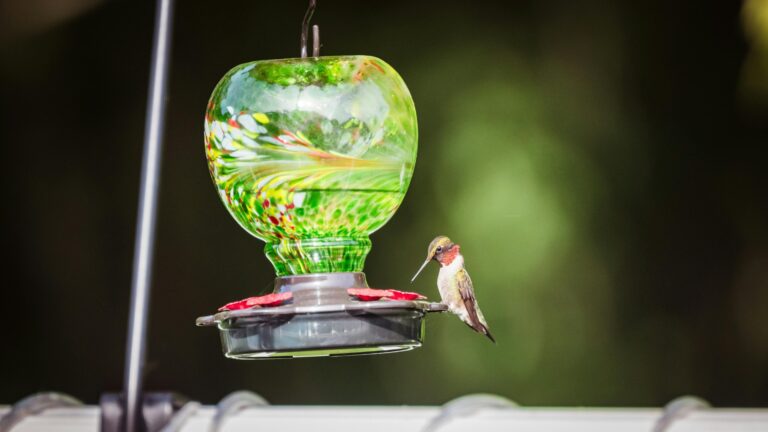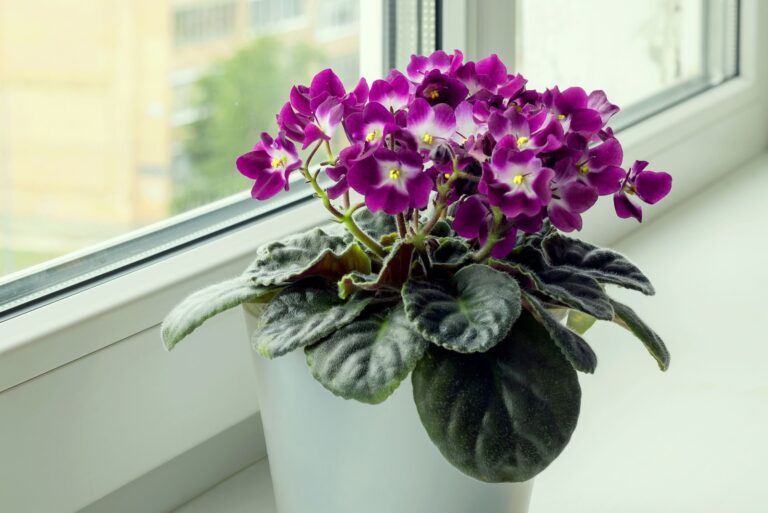22 Facts Everyone Should Know About Growing Herbs That Keep Pests Away
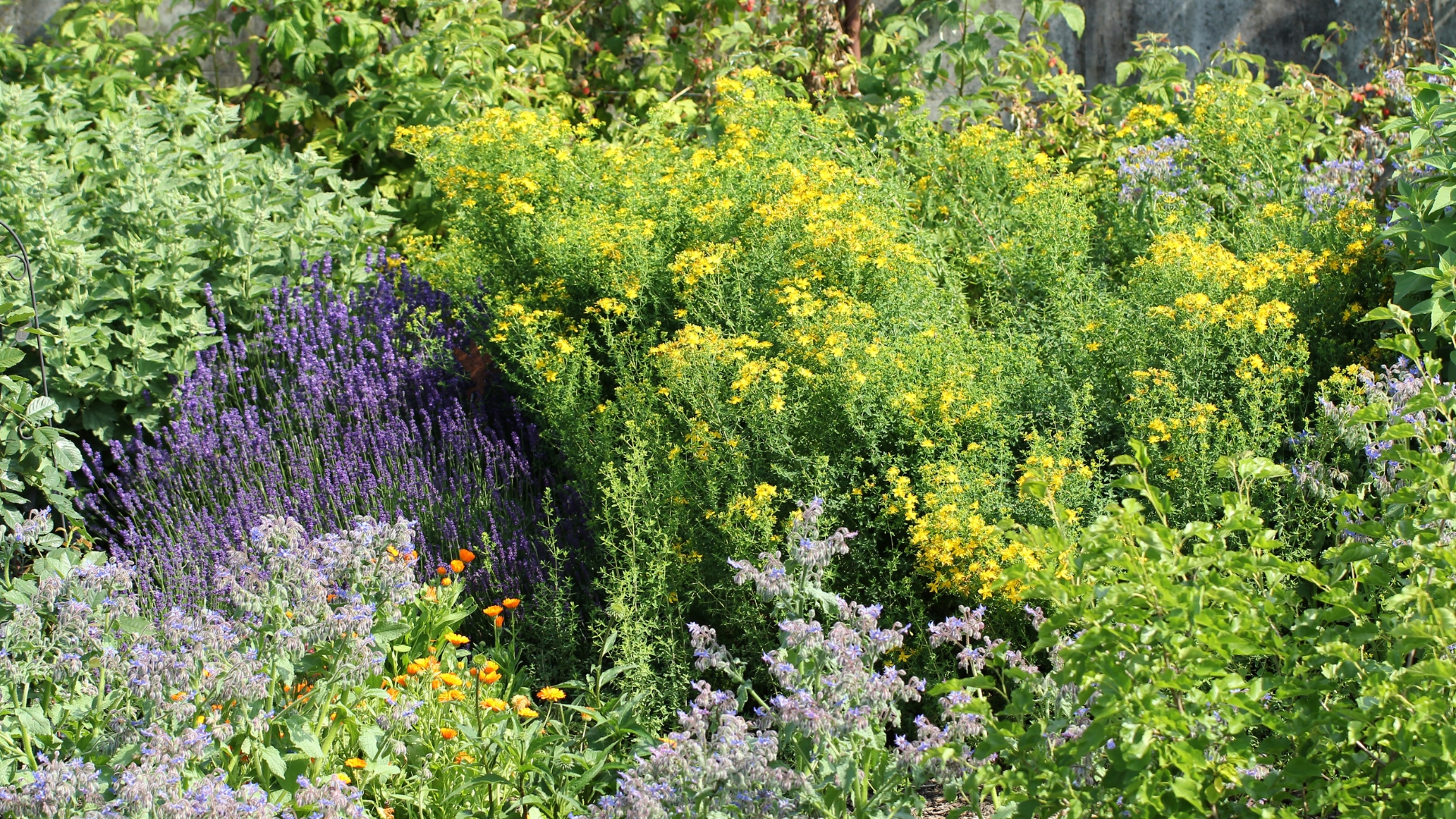
Growing herbs is not only a delightful way to enhance your culinary creations, but it also serves as a natural method to keep pests at bay. Many herbs have inherent properties that deter various insects and animals, making them an eco-friendly alternative to chemical pesticides. This article explores 22 fascinating facts about herbs that are not just beneficial for your garden but also captivating in their diversity and effectiveness.
1. Basil: The Mosquito Buster
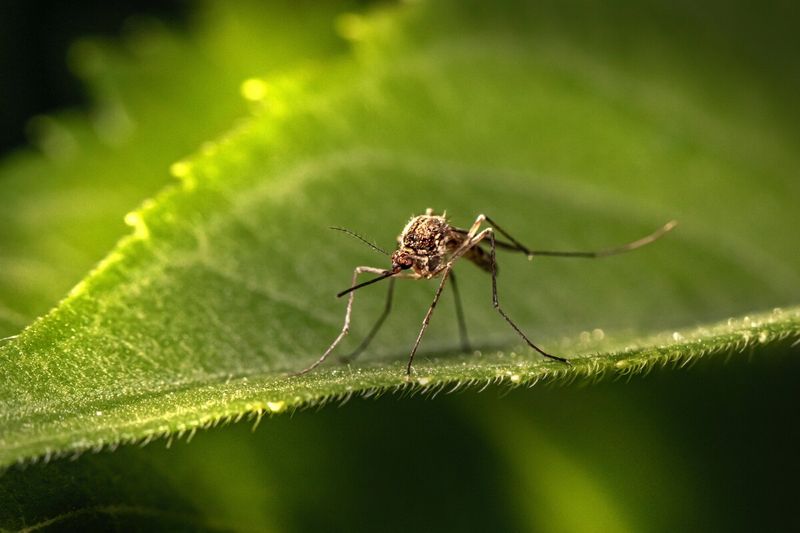
Basil is more than just an aromatic addition to your pasta dishes; it’s a powerful mosquito deterrent. The strong scent of basil’s essential oils confuses mosquitoes, preventing them from identifying their prey.
This herb is easy to grow in pots or garden beds, making it accessible for both city dwellers and rural gardeners. Basil thrives in sunny spots and requires well-drained soil. Not only does it keep mosquitoes away, but it also attracts pollinators, enhancing garden biodiversity.
Add fresh leaves to your salads for a refreshing taste while ensuring your outdoor spaces remain pest-free.
2. Mint: Ants’ Worst Enemy
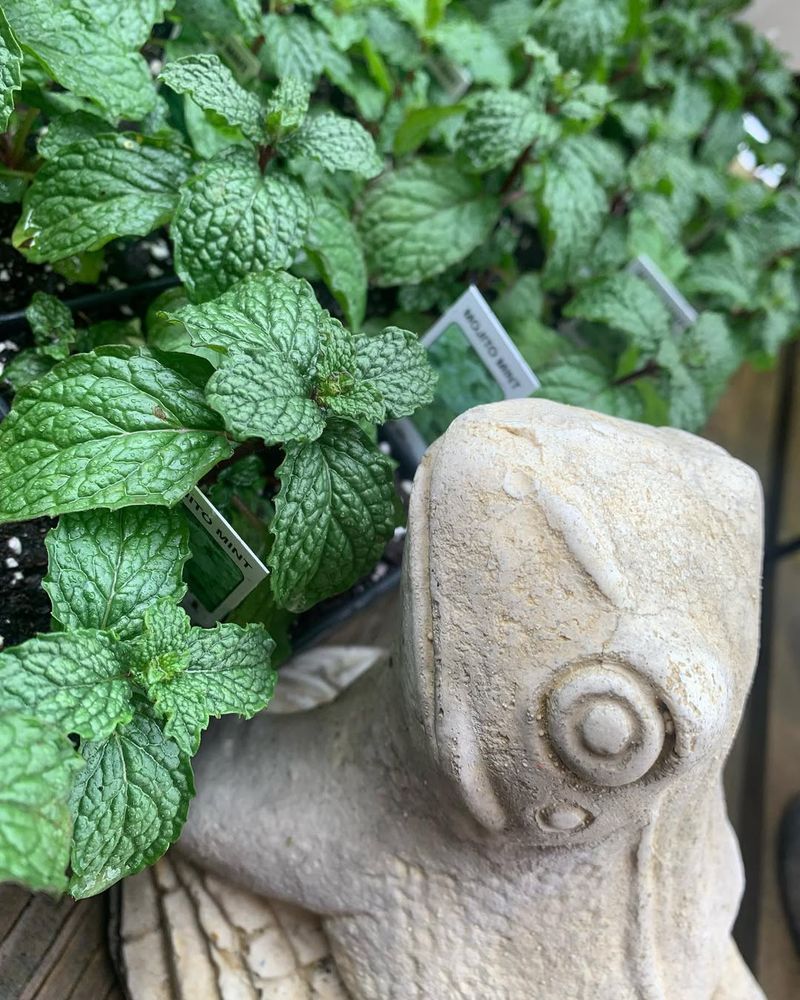
Mint is renowned for its menthol aroma, which ants find overwhelming and unpleasant. By planting mint around your home, you create a natural barrier against these persistent insects.
This hardy perennial spreads quickly, so it’s best grown in containers unless you want it to take over your garden. Mint prefers partial shade and moist soil, thriving in various climates.
Crush a few leaves to release its scent, and place them at entry points to deter ants indoors. Enjoy fresh mint in your beverages while benefitting from its pest-repelling properties.
3. Lavender: Moth and Flea Repeller
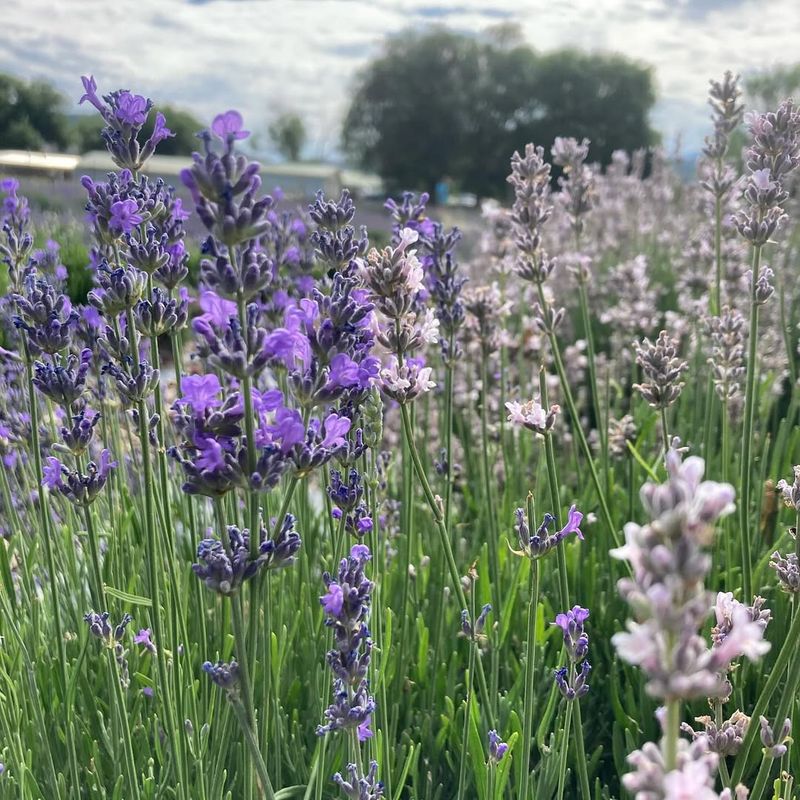
Lavender’s delightful fragrance is a favorite among humans but a repellent to moths and fleas. Its essential oils disrupt the scent trails that moths and fleas rely on for navigation.
Lavender thrives in sunny, well-drained areas, making it perfect for borders and pathways. Its vibrant purple blooms add beauty to gardens while serving a practical purpose.
Hang dried lavender bundles in closets or scatter the blooms around pet bedding to keep these pests at bay. This herb not only beautifies but also protects your home environment effectively.
4. Rosemary: Beetle and Mosquito Repellent
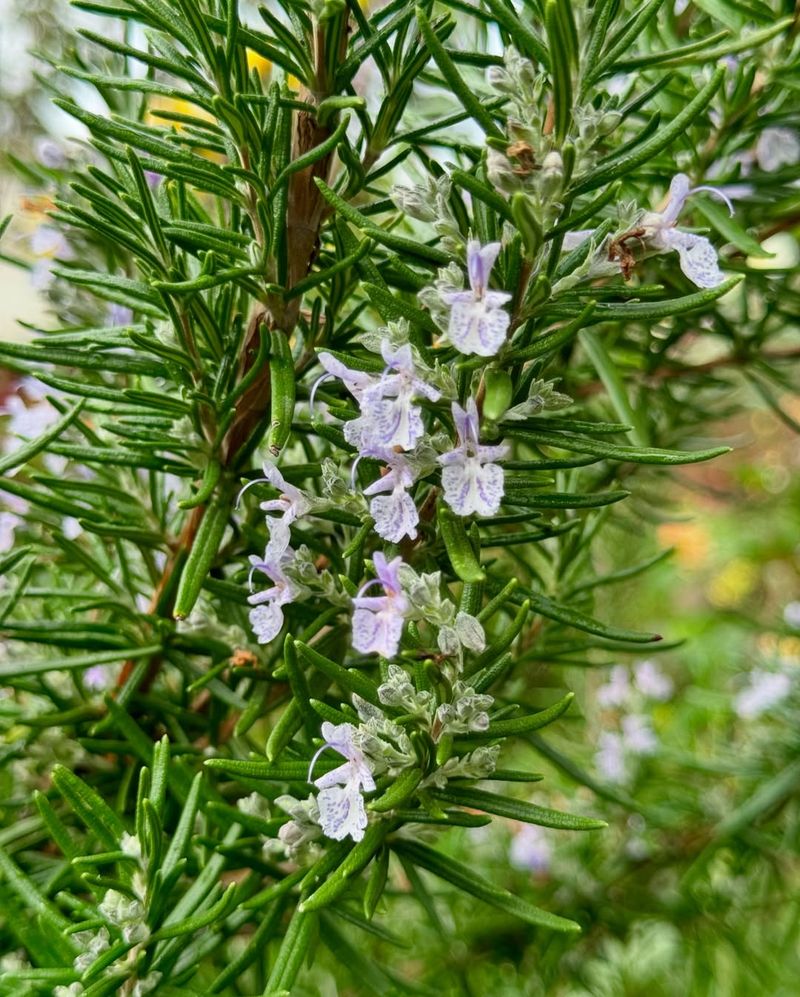
Rosemary is celebrated for its culinary use but also acts as a deterrent to beetles and mosquitoes. Its woody aroma confuses these pests, making it difficult for them to locate their targets.
Best grown in well-drained soil under full sun, rosemary requires minimal maintenance. This herb can be shaped into hedges or grown in containers, suiting various garden styles.
Use rosemary sprigs to flavor meats and vegetables, or crush leaves to release their scent and deter pests. Enjoy a garden that’s as aromatic as it is pest-free.
5. Sage: Caterpillar Deterrent
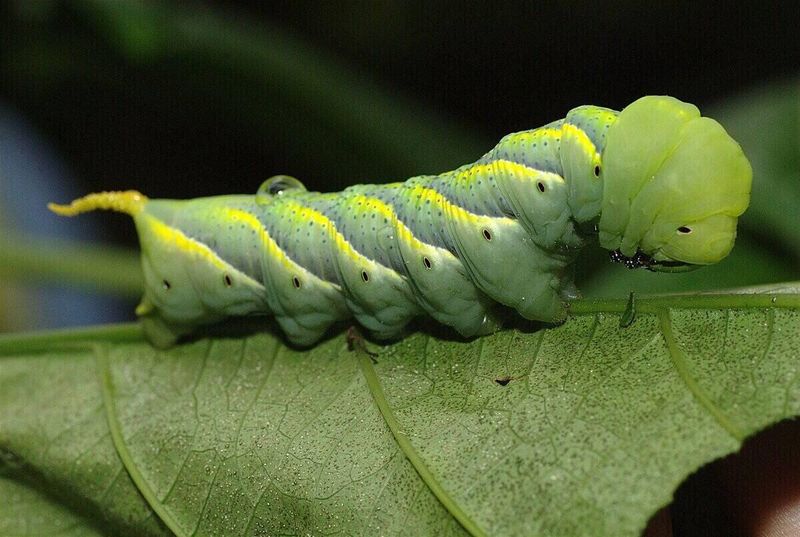
Sage’s pungent aroma makes it unappealing to caterpillars, protecting your precious plants from their voracious appetites. Its essential oils mask the scents that caterpillars rely on for feeding.
This hardy herb thrives in well-drained, sunny locations, often used in culinary dishes for its savory flavor. Sage’s grey-green leaves add texture to garden beds, complementing ornamental plants.
Use sage leaves to enhance your poultry dishes or create an infusion to spray on plants as a caterpillar deterrent. It’s a versatile herb with multifunctional benefits.
6. Thyme: Cabbage Worm Deterrent
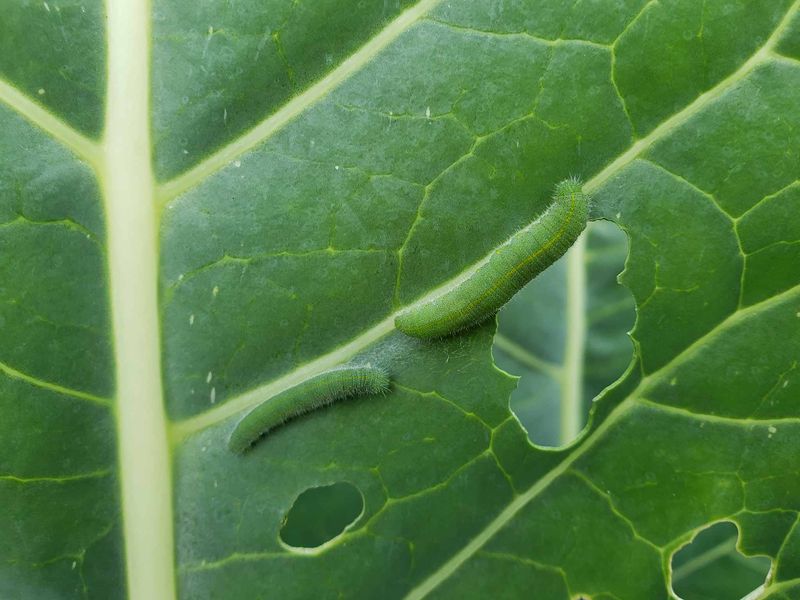
Thyme is a robust herb that keeps cabbage worms away with its intense aroma. The scent of thyme confuses these pests, preventing them from infiltrating your vegetables.
Growing thyme is simple, as it adapts well to various soils and climates, preferring sunny, well-drained areas. Its small leaves and delicate flowers make it a charming addition to any garden.
Incorporate thyme in your cooking for its earthy flavor, and enjoy a cabbage worm-free garden. This herb’s versatility extends from the kitchen to the garden, offering protection and taste.
7. Lemongrass: Mosquito Barrier
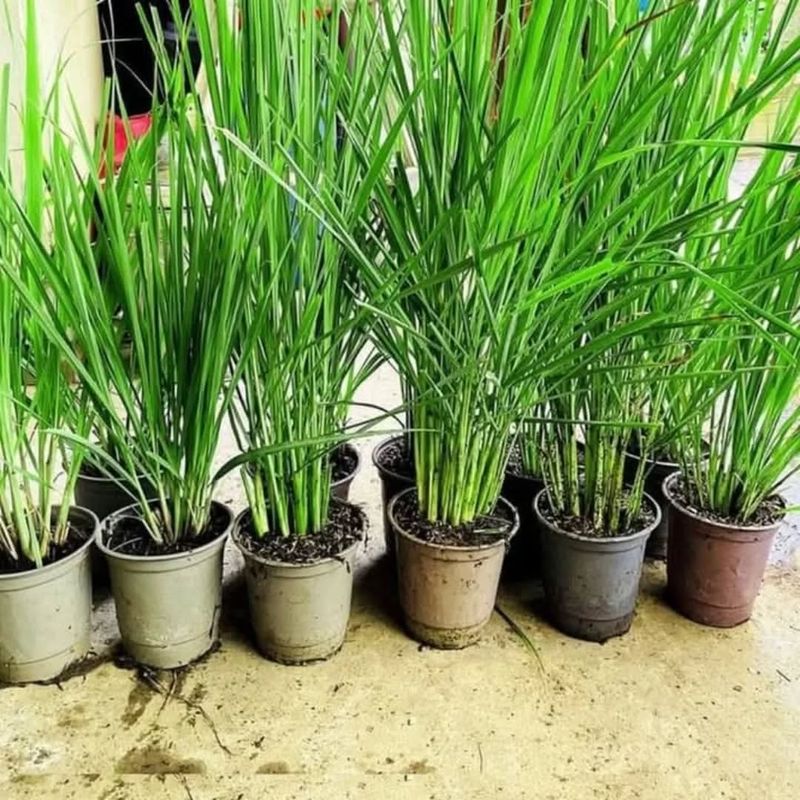
Lemongrass is famous for its citrusy scent, which acts as a natural mosquito repellent. The oils extracted from lemongrass are often used in commercial insect repellents.
This tropical plant thrives in warm climates, preferring well-drained soil and full sun. Lemongrass can be grown in containers or garden beds, adding height and texture to your landscape.
Use its stalks in Asian cuisine for a zesty flavor, or steep in hot water for a calming tea. Whether in your garden or kitchen, lemongrass provides both utility and pleasure.
8. Catnip: Insect Powerhouse
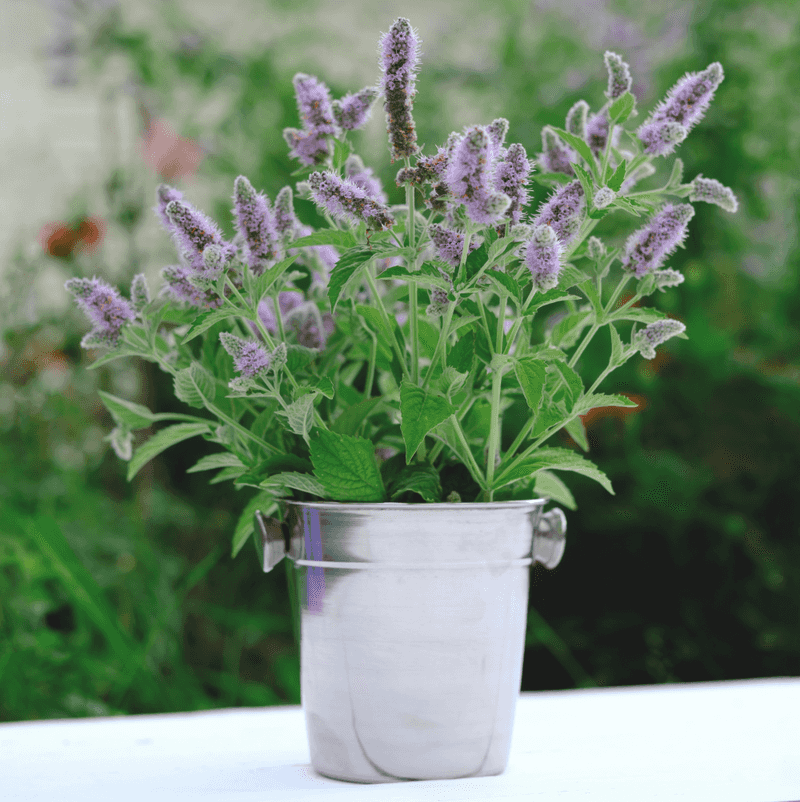
Catnip is not only a feline favorite but also a powerful insect repellent. Its essential oils contain nepetalactone, which is highly effective against mosquitoes, flies, and cockroaches.
This hardy plant grows well in various conditions, preferring sunny spots and well-drained soil. Catnip’s heart-shaped leaves and clusters of flowers add visual interest to gardens.
Use catnip in herbal teas or potpourris, and watch as it keeps pests at bay. Embrace this herb for both its pest-repelling and relaxing properties, suitable for any garden enthusiast.
9. Garlic: Aphid Deterrent
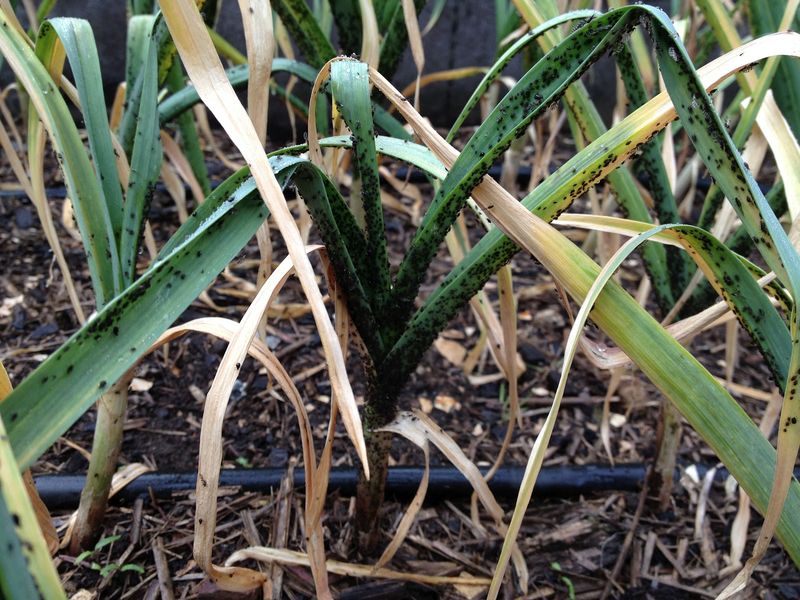
Garlic is known for its potent aroma, which is unappealing to aphids. The sulfur compounds in garlic deter these tiny pests, protecting your plants from damage.
Easy to grow, garlic requires minimal care, thriving in well-drained soil under full sun. Plant cloves in the fall for a summer harvest, enjoying both its culinary and pest-repelling qualities.
Crush garlic cloves to make a natural spray, applying it to plants to deter aphids. Garlic offers a dual benefit, enhancing your dishes while safeguarding your garden from aphid invasions.
10. Chives: Japanese Beetle Repellent
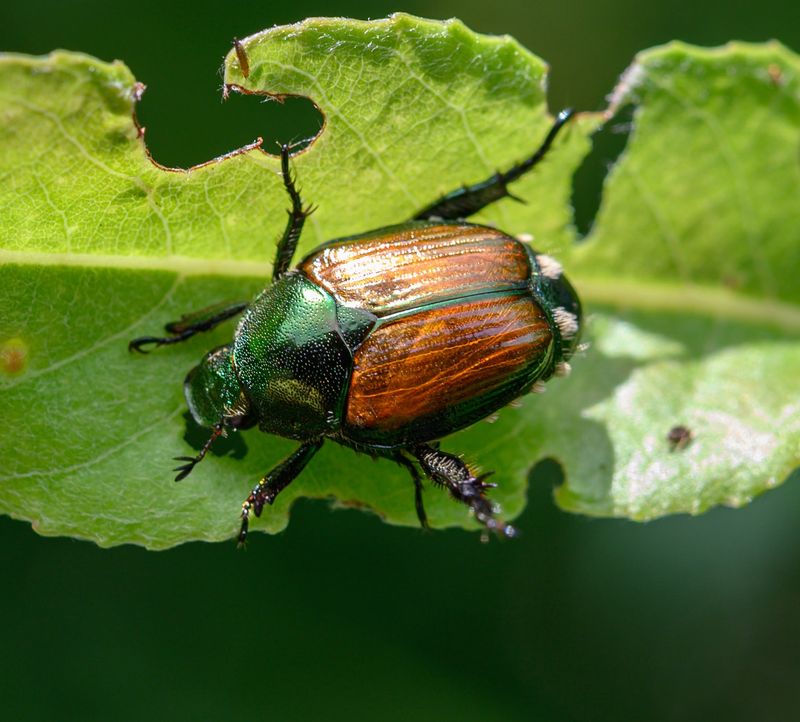
Chives belong to the onion family and are renowned for their ability to repel Japanese beetles. Their strong scent confounds these pests, preventing them from damaging your plants.
This perennial herb is simple to cultivate, thriving in well-drained soil and sunny locations. Chives’ purple flowers add color to gardens, making them both functional and decorative.
Incorporate chives into your cooking for a mild onion flavor, and plant them near roses or fruit trees to deter beetles. Embrace chives for their culinary and pest-repelling advantages.
11. Parsley: Carrot Fly Deterrent
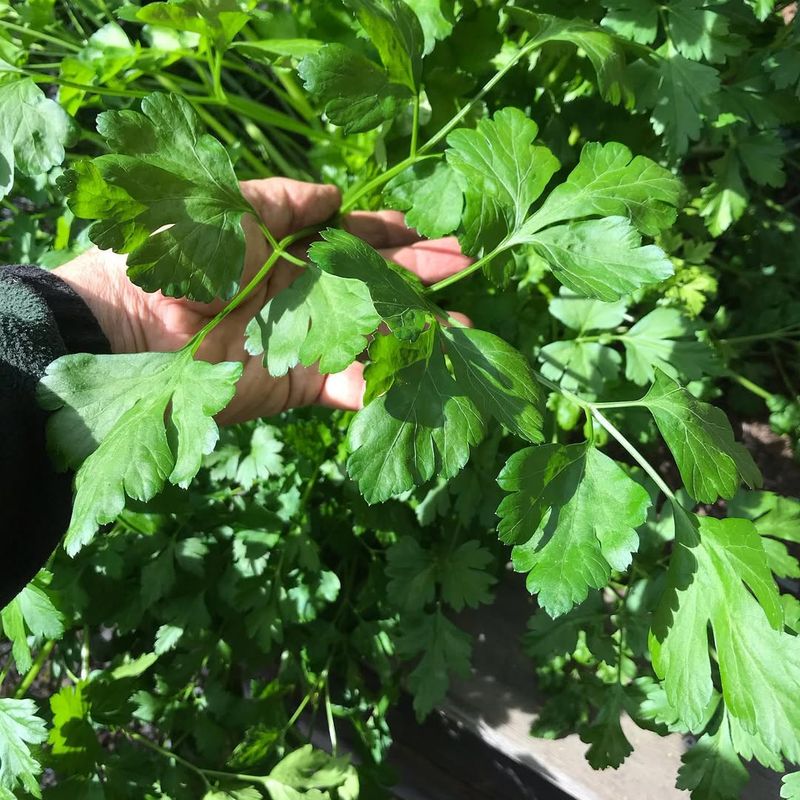
Parsley’s fresh scent confuses carrot flies, making it an excellent companion plant for carrots. It disrupts the flies’ ability to locate their host plants, reducing the risk of infestation.
Parsley is a biennial herb, best grown in well-drained soil with ample sunlight. Its lush, green leaves enhance garden aesthetics while serving a protective role.
Use parsley to garnish dishes or add flavor to soups and stews. Pair it with carrots in your garden for a natural pest-repellent duo, ensuring a healthy and bountiful harvest.
12. Oregano: Spider Mite Deterrent
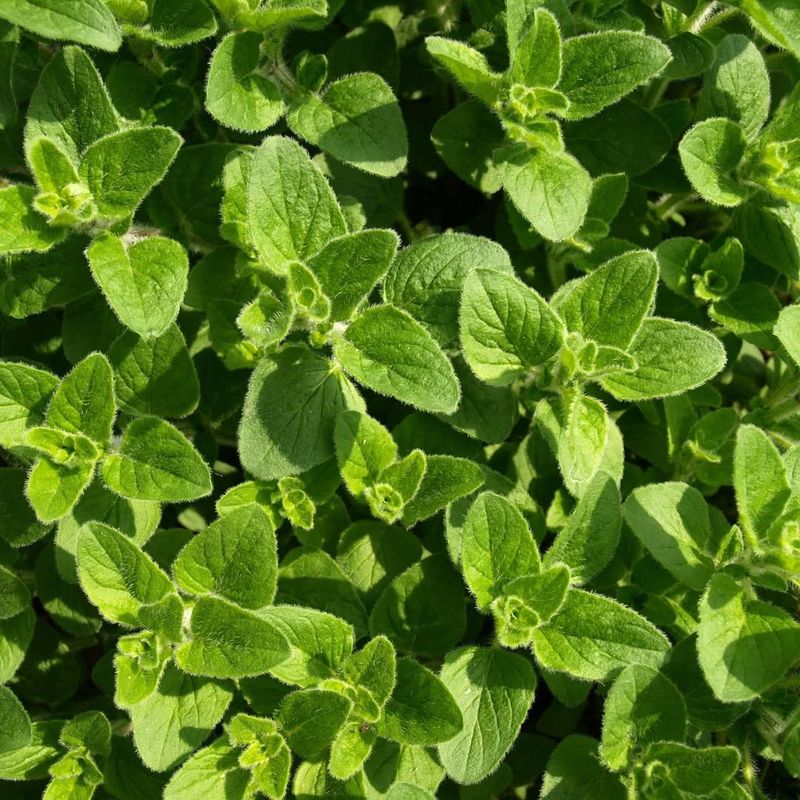
Oregano is a culinary favorite with pest-repelling properties, particularly against spider mites. Its aromatic oils interfere with the mites’ sense of smell, reducing their presence in gardens.
This perennial herb thrives in sunny, well-drained areas, requiring minimal care. Oregano’s small, fragrant leaves make it a lovely addition to both herb gardens and ornamental beds.
Enjoy oregano in Mediterranean dishes while it keeps your garden free of spider mites. It’s a versatile herb, offering both culinary delight and pest protection, suited for any gardener.
13. Bay Leaves: Weevil Repellent
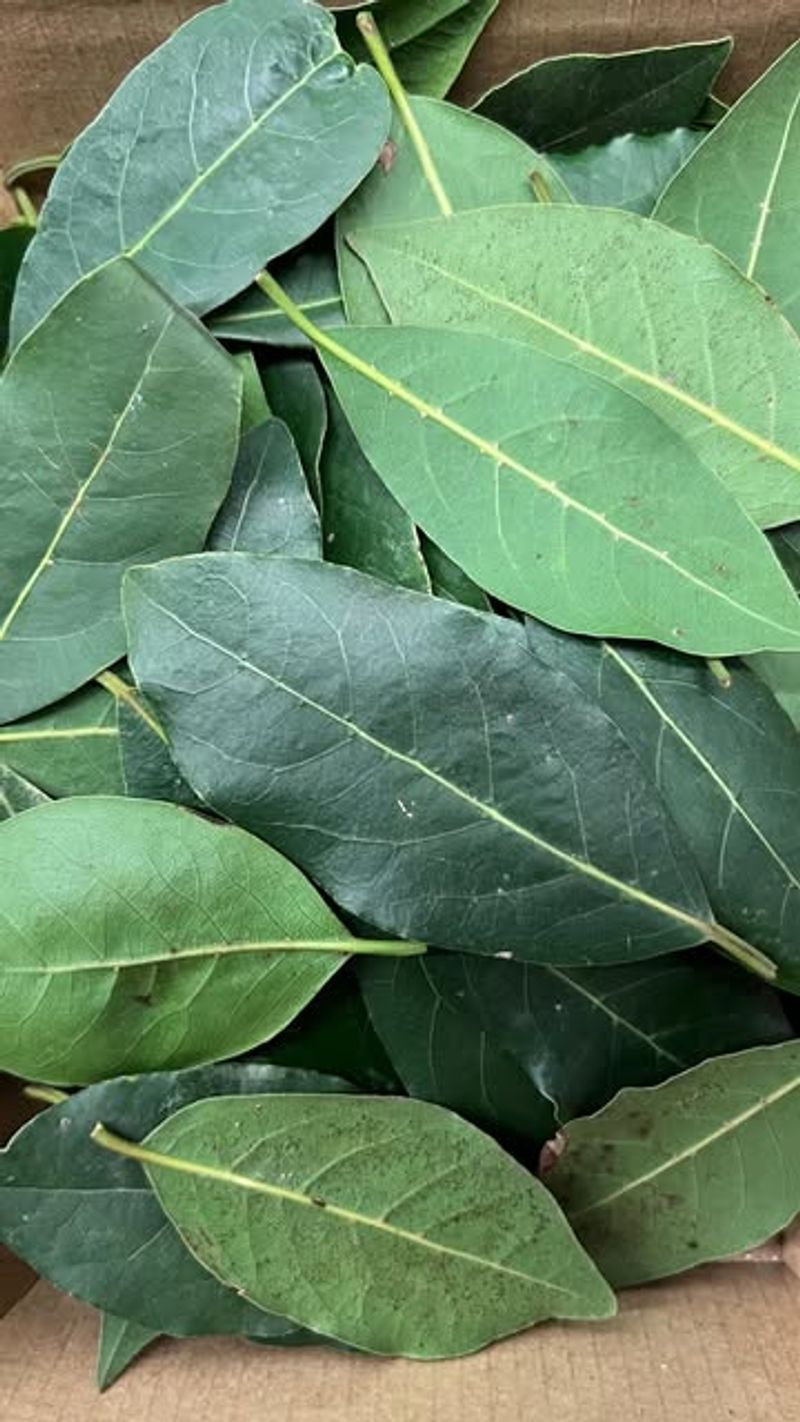
Bay leaves are not only a staple in the kitchen but also effective weevil deterrents. Their pungent aroma confuses these pests, preventing them from infesting stored grains.
This evergreen shrub thrives in well-drained soil, preferring sunny to partially shaded locations. Bay leaves add structure and greenery to gardens, along with their protective qualities.
Place dried bay leaves in pantry areas to safeguard food supplies from weevils. Incorporate them into soups and stews for flavor, enjoying their dual benefits in your home and garden.
14. Fennel: Aphid and Slug Deterrent
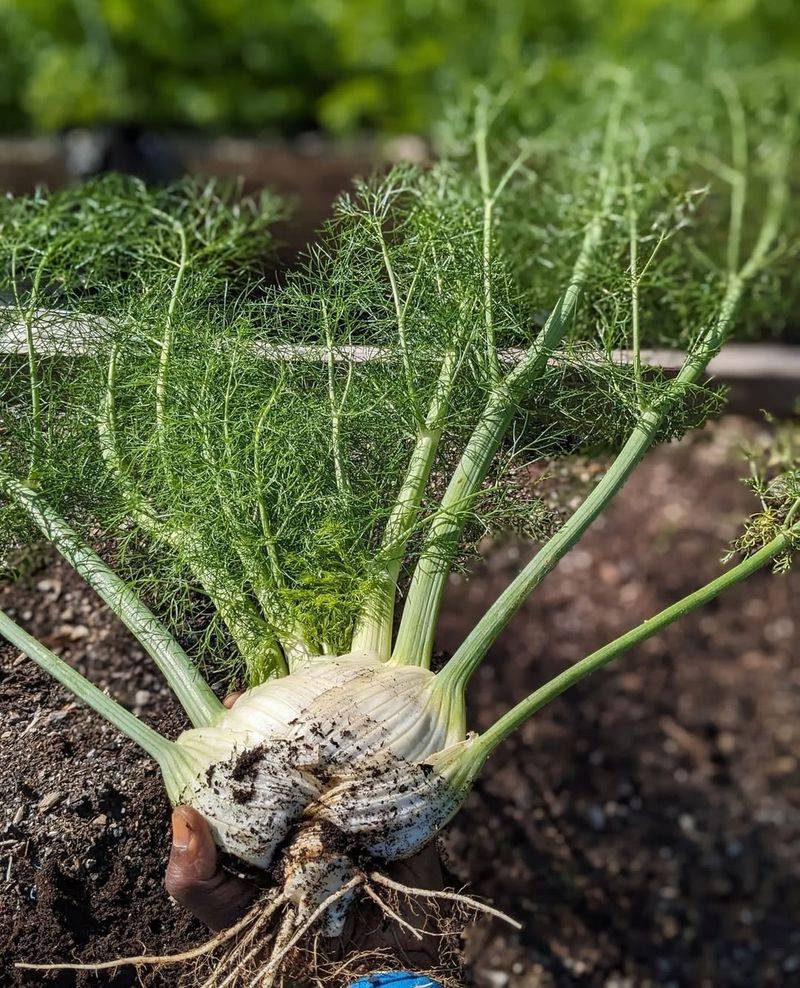
Fennel’s licorice-like scent is unappealing to aphids and slugs, making it an effective companion plant. Its aromatic oils interfere with these pests’ ability to find and feed on plants.
Growing fennel requires well-drained soil and sunny locations, where it can reach impressive heights. Its feathery leaves and yellow flowers add visual appeal to any garden.
Use fennel in cooking for its unique flavor, and plant it near susceptible crops to deter pest invasions. With fennel in your garden, you can enjoy both pest control and culinary enrichment.
15. Marigold: Nematode Repellent
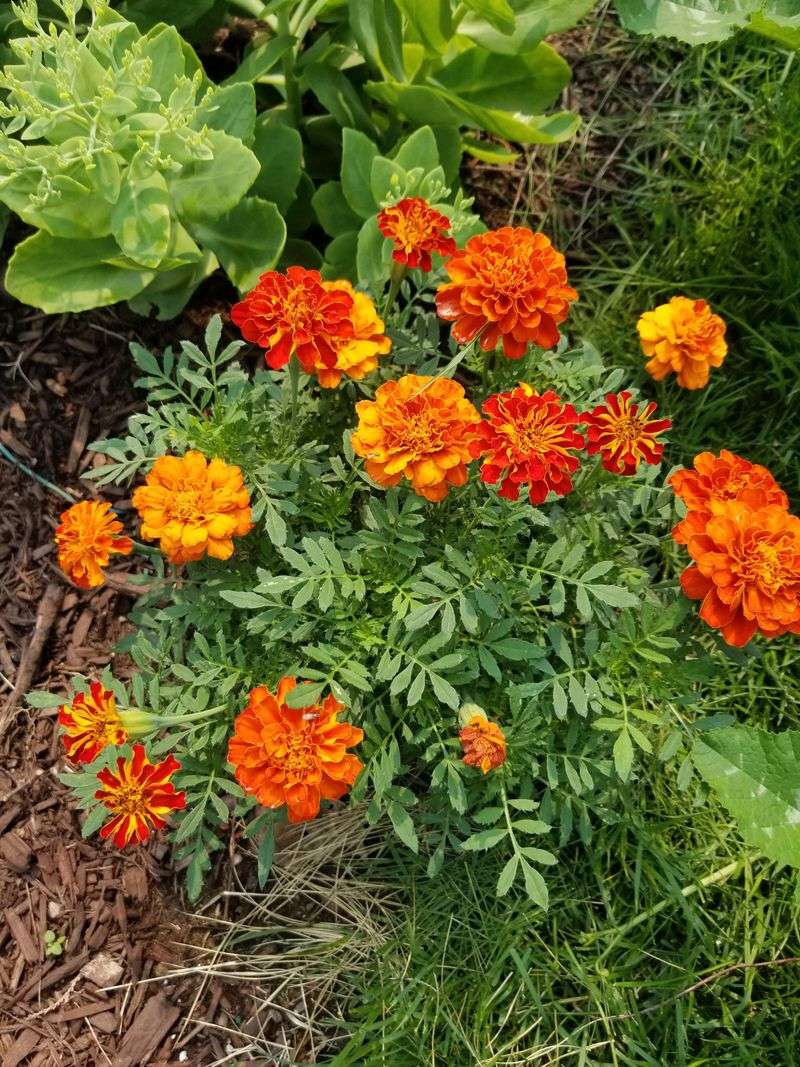
Marigolds are renowned for their vibrant blooms and nematode-repelling properties. Their roots release compounds that deter these soil-dwelling pests, protecting your plants’ root systems.
These annual flowers are easy to grow, thriving in well-drained soil and sunny locations. Marigolds add color and life to gardens while serving a practical purpose.
Plant marigolds alongside vegetables to reduce nematode populations and enhance garden aesthetics. Enjoy their bright flowers and the pest protection they offer, ensuring a healthy growing environment.
16. Nasturtium: Aphid and Whitefly Deterrent
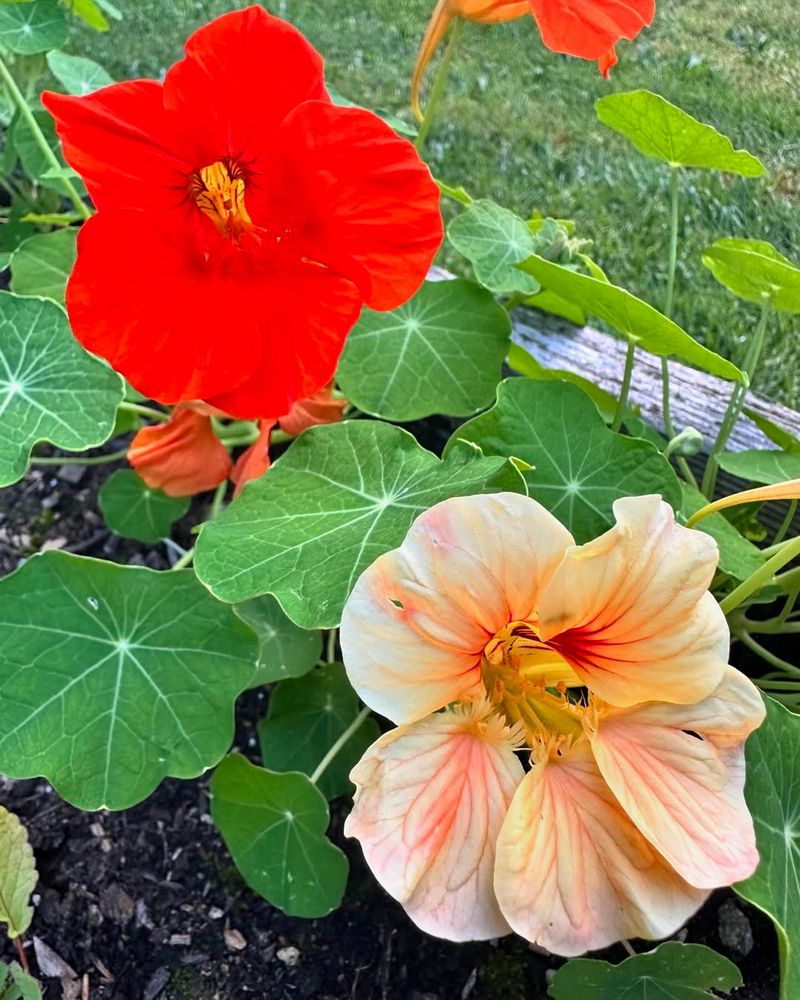
Nasturtiums are beloved for their vibrant flowers and ability to deter aphids and whiteflies. Their peppery scent confuses these pests, reducing their impact on your garden.
These annuals grow well in poor soil and full sun, making them a low-maintenance choice for gardeners. Nasturtiums’ trailing vines and colorful blooms add charm to any landscape.
Use nasturtium leaves and flowers in salads for a zesty flavor, while enjoying a pest-free garden. Embrace these flowers for their dual function of beauty and pest control.
17. Dill: Aphid and Spider Mite Repellent
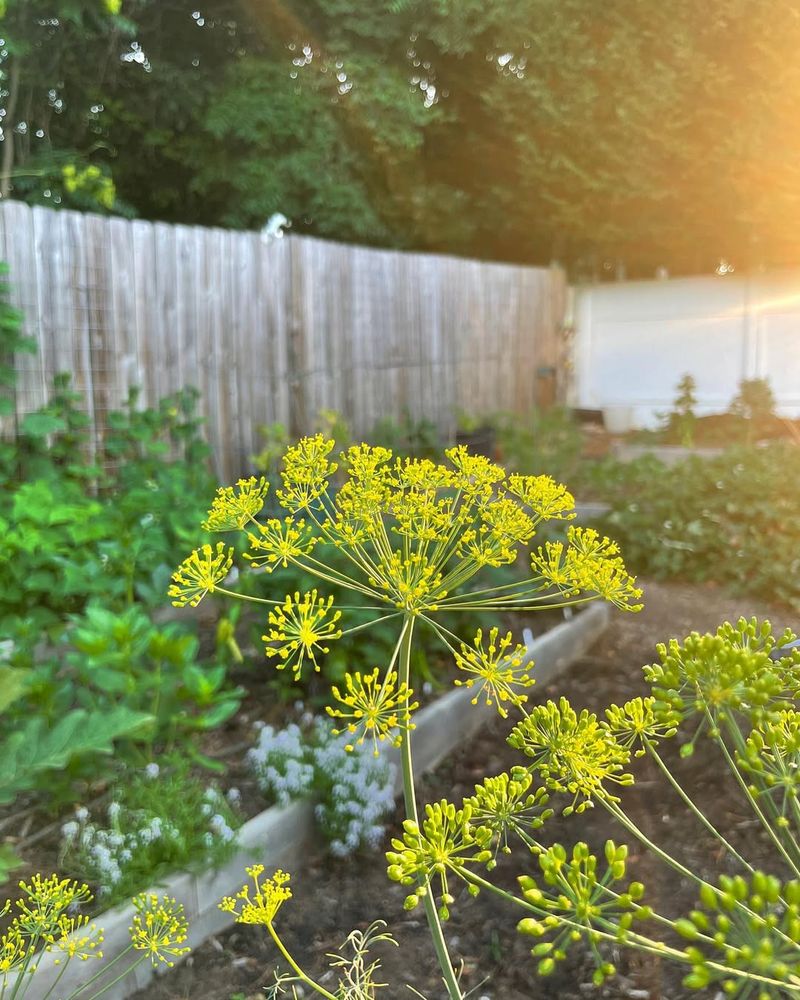
Dill’s feathery foliage exudes a scent that repels aphids and spider mites, protecting your garden’s vegetables and herbs. Its essential oils disrupt these pests’ abilities to locate their targets.
This herb thrives in sunny, well-drained areas, often used in culinary dishes for its distinct flavor. Dill’s delicate yellow flowers attract beneficial insects, balancing garden ecosystems.
Incorporate dill into pickles for flavor, and plant it near susceptible crops for natural pest control. Enjoy dill’s dual benefits in both your kitchen and garden.
18. Coriander: Aphid and Spider Mite Deterrent
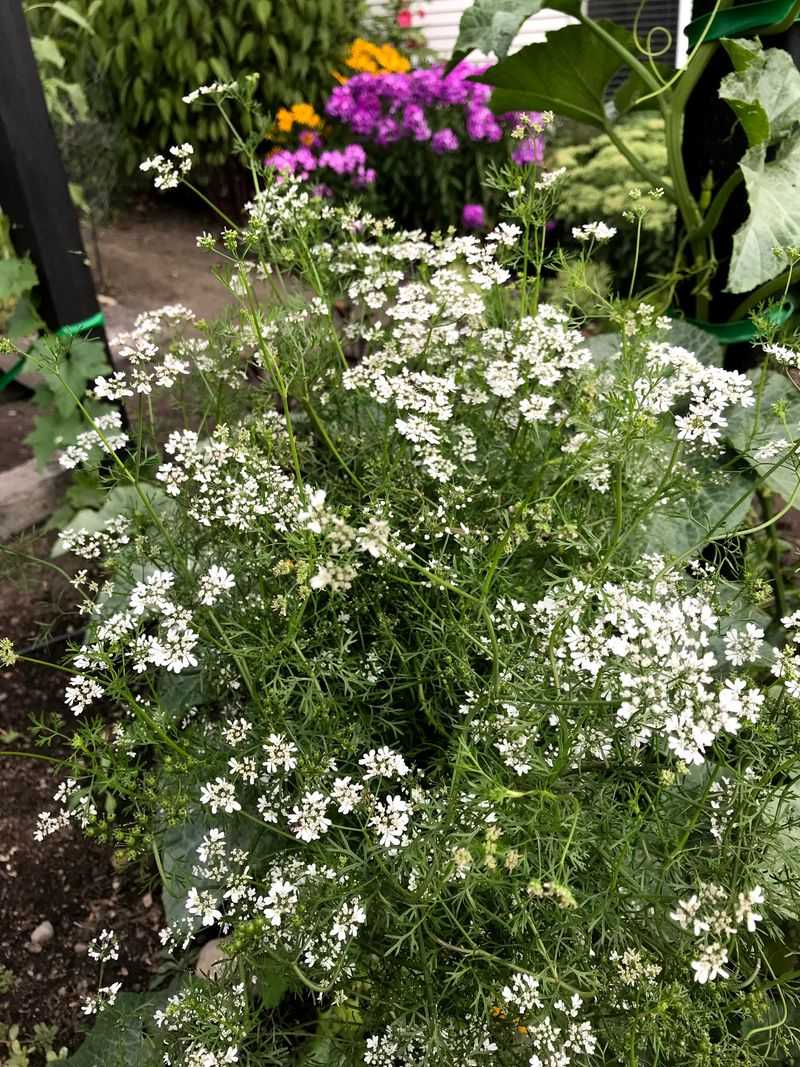
Coriander, or cilantro, is more than just a culinary herb; it effectively repels aphids and spider mites. Its strong scent disrupts these pests’ sensory abilities, safeguarding your plants.
This annual herb grows best in well-drained soil with full sun, adding lush greenery to gardens. Coriander’s feathery leaves and fragrant seeds are culinary staples worldwide.
Use coriander in your cooking while planting it near vulnerable crops to deter pests. Enjoy its fresh flavor and protective qualities, ensuring a thriving garden environment.
19. Lemon Balm: Mosquito Deterrent
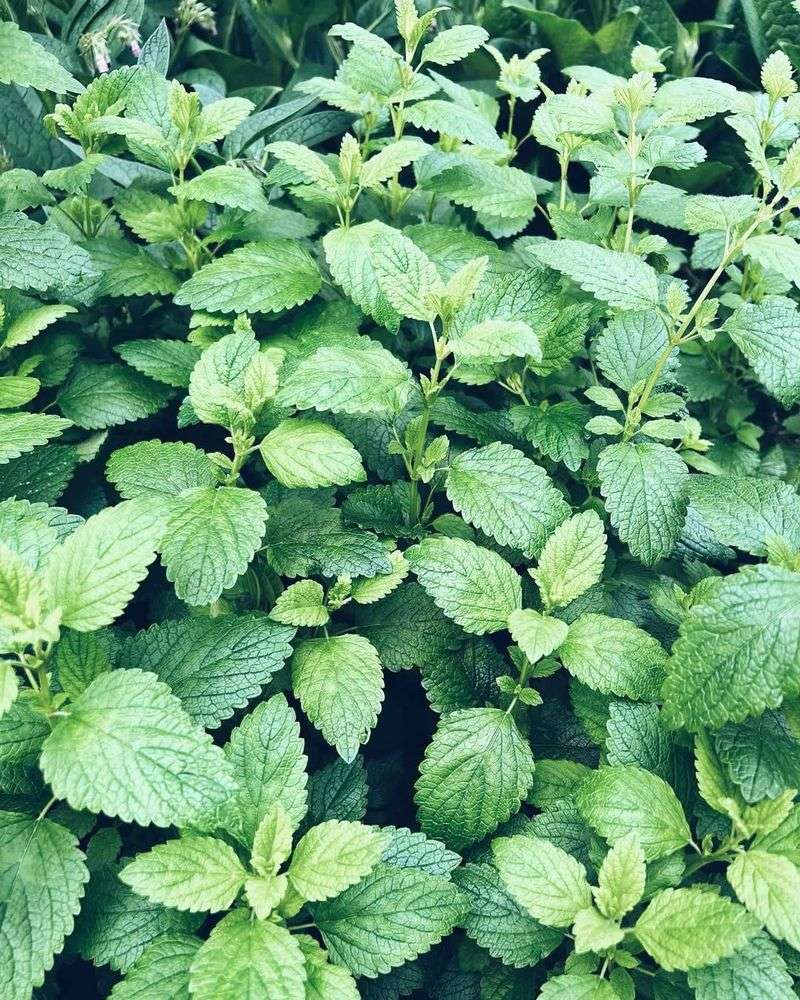
Lemon balm’s citrusy scent is a natural mosquito deterrent, making outdoor spaces more enjoyable. Its essential oils mask the scents mosquitoes use to locate potential hosts.
This perennial herb thrives in well-drained soil, preferring sunny or partially shaded areas. Lemon balm’s lush foliage and small flowers add both beauty and function to gardens.
Use lemon balm in teas or potpourris while benefiting from its mosquito-repelling properties. Embrace this herb for both its aromatic charm and protection against pests.
20. Tansy: Ant and Mosquito Deterrent
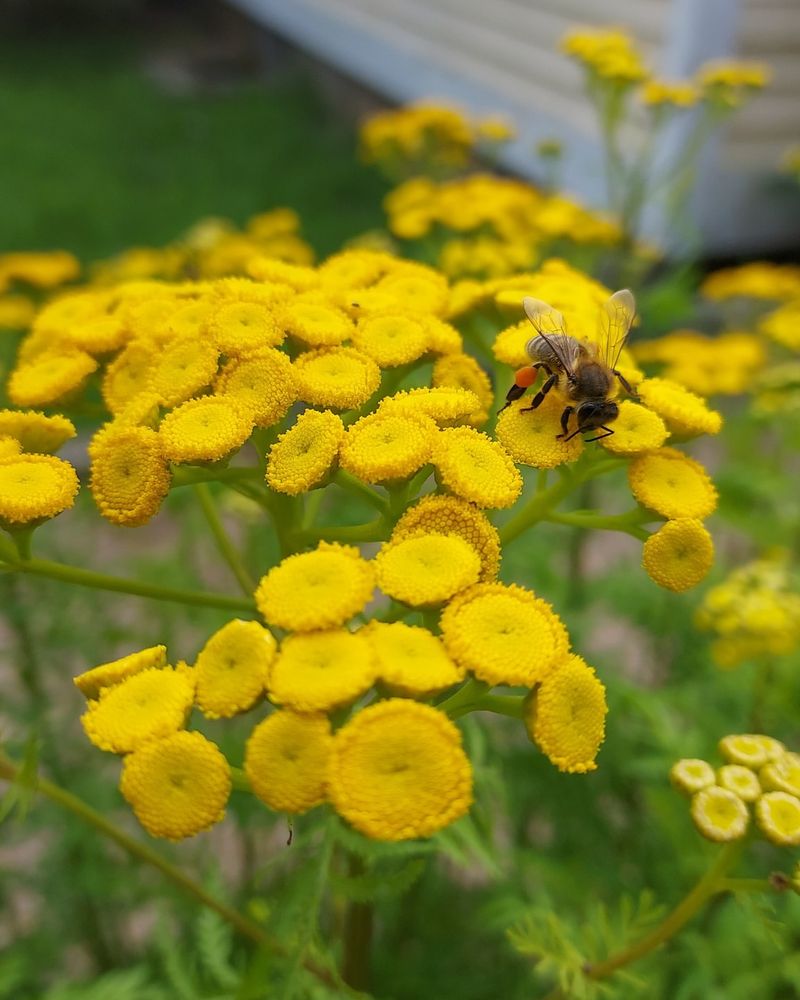
Tansy is renowned for its strong aroma, which effectively deters ants and mosquitoes. Its essential oils disrupt these pests’ abilities to locate food and hosts.
This herb thrives in sunny, well-drained locations, with bright yellow flowers that add visual interest. Tansy’s robust growth makes it suitable for borders or as a companion plant.
Use tansy in dried arrangements or natural insect repellents, enjoying a pest-free environment. This herb’s dual benefits of beauty and protection make it a valuable addition to any garden.
21. Scented Geraniums: Mosquito Repellent
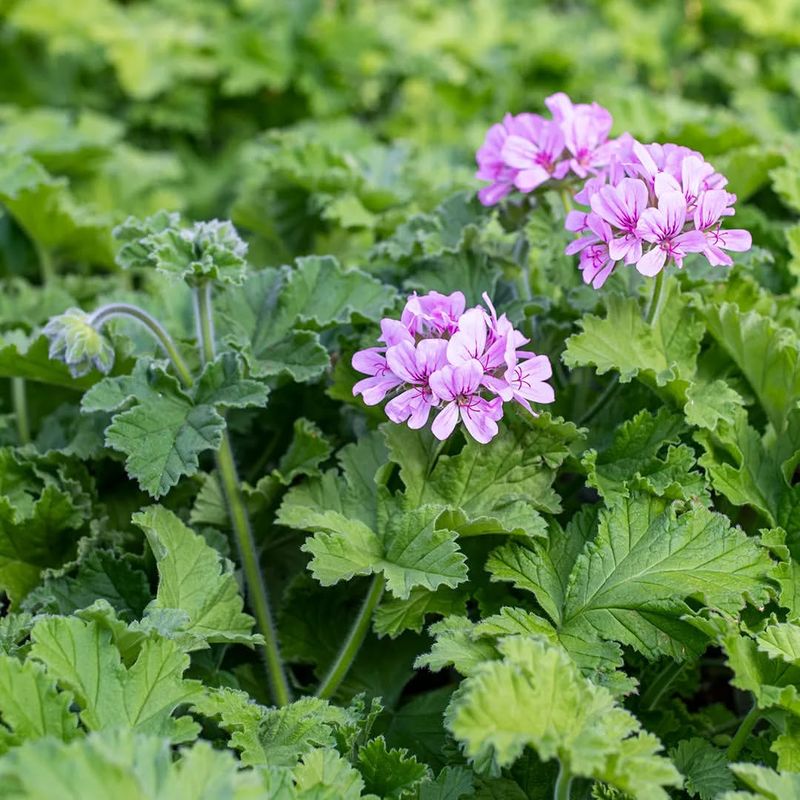
Scented geraniums, known for their delightful fragrances, effectively repel mosquitoes. Their oils mask the scents that attract mosquitoes, making outdoor areas more pleasant.
These versatile plants thrive in various conditions, preferring sunny spots with well-drained soil. Scented geraniums’ colorful blooms enhance garden aesthetics while serving a protective role.
Use their leaves in potpourris or as natural air fresheners, enjoying a mosquito-free environment. Embrace scented geraniums for their dual benefits of fragrance and pest control.
22. Pennyroyal: Insect Repellent
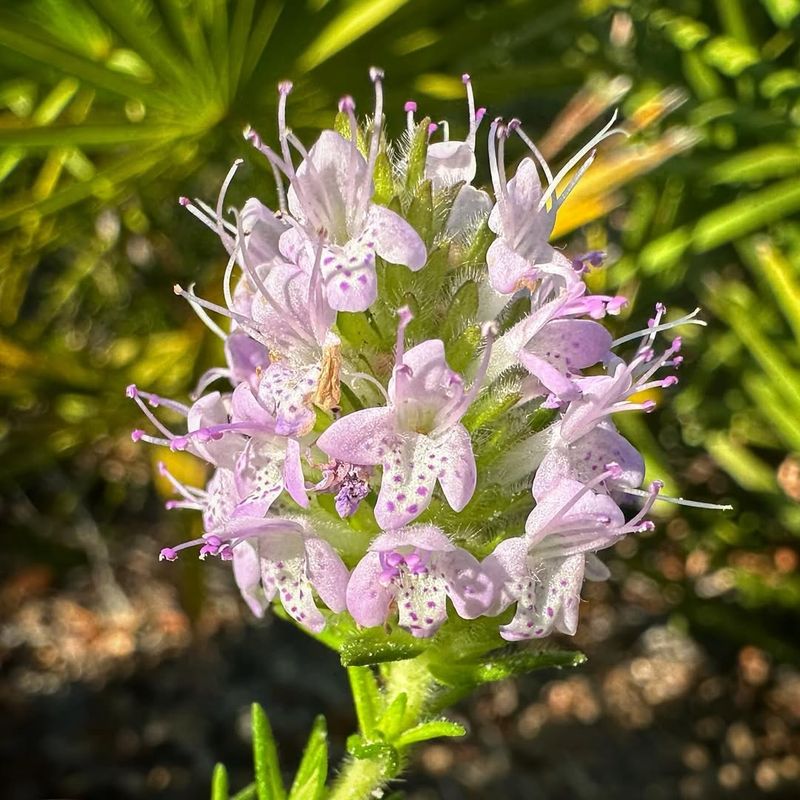
Pennyroyal’s minty aroma is a powerful insect repellent, effectively deterring mosquitoes, fleas, and ticks. Its strong scent confuses these pests, disrupting their sensory cues.
This perennial herb thrives in sunny, well-drained areas, adding greenery to garden beds. Pennyroyal’s small purple flowers attract pollinators, balancing garden ecosystems.
Use pennyroyal in sachets or natural sprays for pest protection, while enjoying its aromatic appeal. Embrace this herb for its comprehensive pest-repelling properties in your garden.

